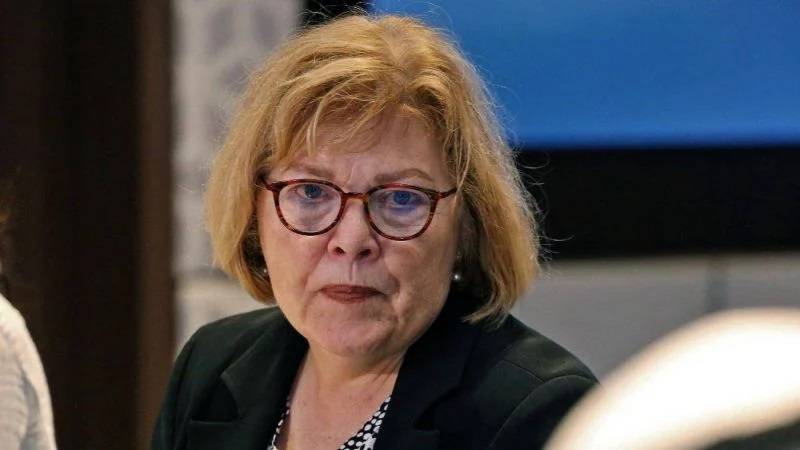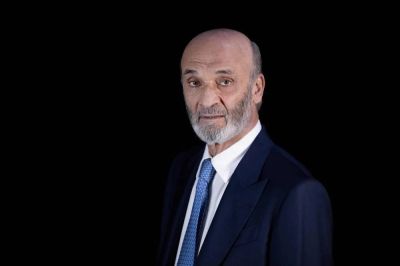
US Under-Secretary of State for Near Eastern Affairs Barbara Leaf. (Credit: AFP)
BEIRUT — US Assistant Secretary of State for Near Eastern Affairs Barbara Leaf said Wednesday that the Biden administration is considering imposing sanctions on Lebanese officials if the country does not elect a new president.
This information was reported Wednesday by several local media outlets and confirmed to L'Orient-Le Jour by a source close to the matter. It was then verified via a video of Leaf's hearing in front of the Senate Subcommittee on the Near East, South Asia, Central Asia and Counterterrorism.
Pressure
The diplomat was responding to a question from Democratic Senator Cynthia Jeanne Shaheen, who asked whether it was possible for Washington to "incentivize and disincentive" Lebanese institutions to act to prevent Lebanon from actually becoming a "failed state."
Leaf replied that the political stalemate in Lebanon is "a source of huge frustration" for the US administration, which is cooperating with "regional and European partners to push the Lebanese Parliament to do its job."
Criticizing "elected officials who are not doing their job" and the Speaker of Parliament, Nabih Berri, "who has not called an [presidential] electoral session since January," the assistant secretary of state asserted that Washington is "looking for ways" to sanction those responsible for the deadlock, without providing further details.
She also said she was "putting pressure" on the Lebanese parliamentarians she meets when they visit the United States.
"Lebanon is in a terrible situation," the diplomat acknowledged, adding that the United States had taken "a series of measures that go beyond humanitarian aid" to remedy the situation.
"We have used a wide variety of tools, including individual aid" to members of the Lebanese Army and the Internal Security Forces, two institutions that still enjoy the "trust of the people," she added.
Targeted sanctions
Later on Wednesday, two members of the US House of Representatives Foreign Affairs Committee, Michael T. McCaul, the committee's chairman, and ranking member Gregory Meeks, expressed in a letter to US Secretary of State Antony Blinken their "grave concern as Lebanon grapples with an all-consuming political and economic crisis that is devastating the country."
They called on "the Administration to use all available authorities, including additional targeted sanctions on specific individuals contributing to corruption and impeding progress in the country, to make clear to Lebanon’s political class that the status quo is not acceptable."
"The path out of this crisis further requires a president committed to upholding the authority of the state, including the guarantees laid out in Lebanon’s constitution, and advancing long overdue reforms, particularly the critical economic reforms mandated by the International Monetary Fund," the text reads.
"Despite months of negotiation to try to appoint a president, Lebanon continues to be led by a caretaker government with limited authority to advance desperately needed reforms," the text continues.
It is also contributing "to growing security concerns as Iran’s terrorist proxy Hezbollah seeks to strengthen its grip over the country."
The two elected representatives also called on the administration "to continue pressing for full accountability for the August 2020 Beirut Port Blast and support independent, international investigatory efforts into egregious fraud and malfeasance by the Governor of Lebanon’s Central Bank."
Lebanon has been without a president since the end of Michel Aoun's term of office on Oct. 31, 2022. Since then, several countries, including France, the United States, Saudi Arabia and other world and regional powers, have been trying to help the country break its political impasse.
In 2020, Bassil was sanctioned by the US Office of Foreign Assets Control (OFAC) over accusations of corruption in the energy sector, which "aided and abetted" Hezbollah operations.
Washington regularly imposes sanctions on cadres and members of Hezbollah, as well as on individuals considered to provide it with financial and logistical support.
In 2021, the US Treasury imposed sanctions against Lebanese MP Jamil Sayyed, close to the Assad regime in Damascus, and entrepreneurs Jihad al-Arab and Dany Khouri, accused of having "contributed to the disintegration of the state."
